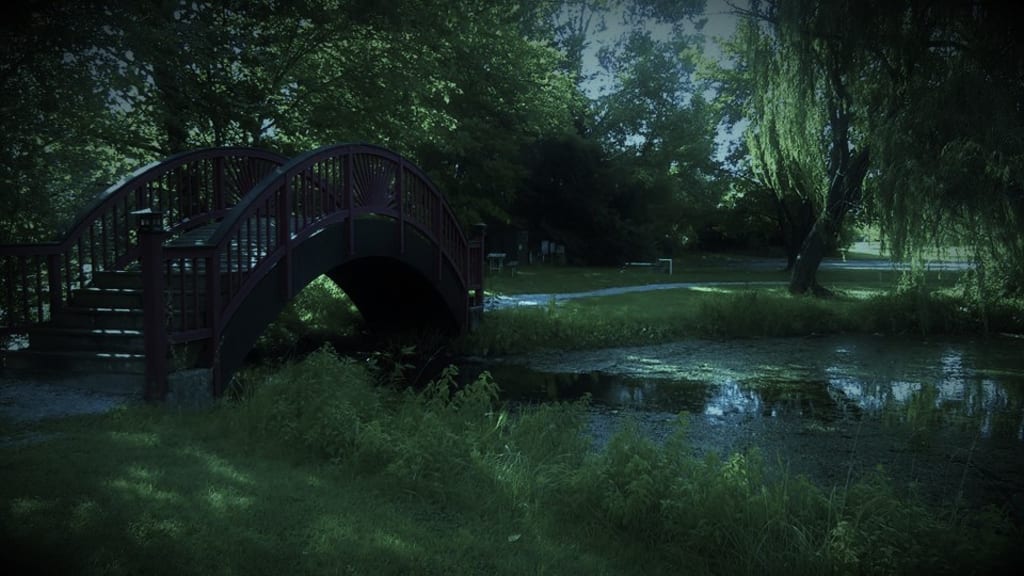A Perspective on Life
Ft. H.P. Lovecraft & Charles Finch

There is patience and consistence in temperance, kindness and empathy in ubiquitous understanding, as well as strength and stability in modesty. I have understood the difference between achieving knowledge and achieving wisdom, and from what I have learned I have decided that I am neither wise nor knowledgeable.
H.P. Lovecraft had once written in his story "The Call of Cthulhu," “The most merciful thing in the world, I think, is the inability of the human mind to correlate all its contents. We live on a placid island of ignorance in the midst of black seas of infinity, and it was not meant that we should voyage far.” How is it that he should say that we weren’t to “voyage far”? The analogy implies that we mustn't delve too deep, or this case, too far out from our blissful island of ignorance; knowing the truth of everything would mean uncertain demise, or worse, a death that we are most aware of. Yes, it was thought that we must spare ourselves our sanity and remain foolishly unaware of the world around us; spare ourselves the calamity of knowing too much.
Life cannot continue with all of us ignorant, nor can we continue living life believing we are all knowledgeable. The greatest gap that encloses our people on a brink of destruction is the masquerading bliss of ignorance that is truly obstruction, malice, and indecision under a thick mask of amity. We are stuck behind clay encasements with a message of fear and despair written in a warning logo along the inside of our disguise. The truth is a radiant weapon with knowledge and fact as its blade, although, despite the common paranoia, it’s not there to bring us down, but to bring us up from the roots of the unknown and grow to a stem strong with a pedantic array of wise and intelligent blossoms.
Long ago, I watched dimly lit street lights pass alongside me as I stared out the window, the width of a tunnel and its extravagant maw exposed the walls of its throat. I imagined the world like I did when I was a child. I trapped gods in the ink of my pen and sealed them in the pages of my journal, I spoke to white walls with whom we gossiped about the corner across the room, and I heard birds laugh and mock us with exuberant animosity. In Charles Finch’s book The Last Enchantments, he writes on page two: “There are times in life when the weather and the landscape seem suddenly as if they’re for you alone, and for a moment there’s a novelistic pressure, an interiority, to gazing out through a window at the snow, or the sun.”
The time of reflection is when life is the worst and the weather makes you weary and you look back and see that whenever the weather was rough, you bore the storm on your shoulders like Atlas and the world, you curled your hands into a joke with success as the punchline. Charles Finch meant that when you look out that window, out at the dimly lit lights and the malevolent imposing maw in front of you, you feel as if the worst is out to get you, but that is the time where you reflect as you gaze at the best of things and remember the good times. For me, it’s beneath that tunnel, inside the throat of that gaping mouth, with the dimly lit world that flickered with each lamp the car passed by. I felt awe; for once, in that moment, the white walls stopped speaking and the gods trapped in my pen didn’t exist and I could live with that.
If I had to reflect and think about how Charles Finch’s words relate to my life, I would focus the entirety contemplating these words: “There are times in life that the weather and the landscape seems suddenly as if they’re meant for you alone…”, and I would agree. I think he means that sometimes we will feel as though the world is against us or entirely with us, and those moments are the worst part of our lives and they are the best part of our lives. He goes on to say that, “…and for a moment there’s a novelistic pressure, an interiority, to gazing out through a window at the snow, or the sun.” I imagine that he meant that the worst and best times of our lives are the best parts to gaze at and reflect.
Once, along the course of many convictions around me, I had concluded that the worst of us were neither best or worst at all, but simply a disturbance and so, the best of us is only as such. In all this, I have deduced that the simplest form of humanity was merely a manifestation of human aspiration and subjective definitions. Instead of gleaning the self-reflection of humanity, adopting precisely what we have come to know, I have adapted to a consciousness relevant only prevalent in a person with the most objective idea’s and premonitions regarding the past, the present, and the future revelations of our fate. You see, even empty space is an object manifested of subatomic particles and random electromagnetic reactions manufactured by the most complex structures of quarks. Interpersonally, between one to another, on a level of both humility and realization, our moments, our precious sentiments are simply more reactions from our subatomic reaction’s reactions. On a grand scale, that light, that tunnel, the open maw that roars with the volatile squeal of human mechanics, is overall, an abyss that no one is aware of. It isn’t sad. It isn’t frightening. It is a peace beyond the scariest ambitions of our predecessors and their mothers and fathers before them. It’s not that we are unimportant, and not that the statement is a statement of arrogance, it is simply a statement that reverberates with our need to interact even in the smallest of ways. Whether it be a touch or a sigh to illuminate our presence, our moments are only one out of a trillionth and more of a chance the universe would interact that way it does. We are not nothing; we are the evidence of a something bigger than the greatest of any grand design. Our own grandeur is not a fallacy of pride but a realization of our place. A simple one, but also a seemingly unlikely one, and yet, we are here.
There are times when the white walls that surround me speak to me and sometimes I speak back. There are times when I feel as though I have trapped gods in the ink of my pen and encased them in the pages of a journal I always seem to lose. The greatest fear I have, I think, is that someday or maybe even tomorrow, I will be alone. Sometimes I’m frightened to think even the white walls will stop talking to me. I think that maybe the floorboards could be slightly more entertaining, but then I think that they’d be grouchy; I would be too if I had people walk over me.
About the Creator
Nathaniel Reidhead
Hey everyone, call me Nathan. I am a student at MSSU and I am a psychology major. I love to write stories and poetry and even essays.






Comments
There are no comments for this story
Be the first to respond and start the conversation.